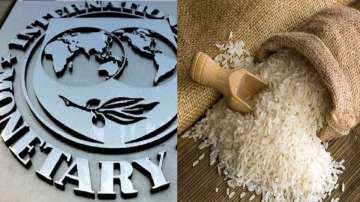The International Monetary Fund (IMF) has stated that it will "encourage" India to lift restrictions on the export of a specific type of rice. The UN financial agency claimed export restrictions by India would have an impact on global inflation. This comes after non-basmati white rice exports were outlawed by the Indian government on July 20 in an effort to increase domestic supplies and regulate retail prices during the upcoming festive season. This variety of rice constitutes about 25 per cent of the total rice exported from the country.
Meanwhile, the food ministry said that there would be no change in the export policy of par-boiled non-basmati rice and basmati rice, which forms the bulk of exports.
Such restrictions can lead to inflation: IMF
Addressing a press conference, the IMF Chief Economist Pierre-Olivier Gourinchas claimed these kinds of restrictions are probably going to make the volatility of food prices everywhere in the world worse than it is now. He further said they can also lead to retaliatory measures. "So, they are certainly something that we would encourage the removal of these types of export restrictions because they can be harmful globally," he added.
The total exports of non-basmati white rice from India was USD 4.2 million in 2022-23 as against USD 2.62 million in the preceding year. Major destinations of India's non-basmati white rice exports include the US, Thailand, Italy, Spain and Sri Lanka. In order to ensure adequate availability of non-basmati white rice in the domestic market and to allay the rise in local prices, the government has amended the export policy from 'Free with export duty of 20%' to 'Prohibited' with immediate effect.
ALSO READ: Indian economy to grow at 6.1 per cent in 2023, projects IMF
IMF on India's growth rate
Earlier on Tuesday, the IMF in its latest economic update projected India's growth rate to be 6.1 per cent for fiscal year 2024, which is slightly up from 5.9 per cent estimated projection for the same period in April.
"India remains an economy that is growing quite strongly. I mean, it's coming down from really a very strong year in 2022, at 7.2 per cent. That was also revised upwards, by the way -- but still slow down, but still fairly strong growth and fairly strong momentum," Gourinchas said.
(With PTI inputs)
Latest World News
